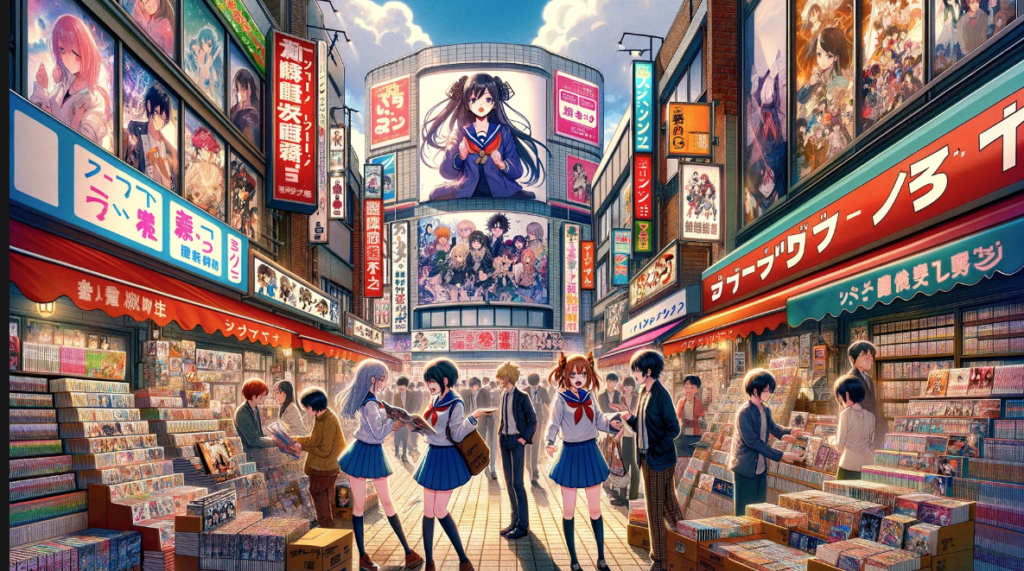
Lesson 23 Anime and Manga
Topic Question: What is the role of anime and manga in Japanese culture?
No. 1: Introduction- First, try answering the question yourself.
The instructor will provide advice on vocabulary, grammar, and expression corrections.
Sample Answer – Let’s read aloud. Instructor will check your pronunciation and accent.
Anime and manga play a significant role in Japanese culture, serving as both a form of entertainment and a medium for storytelling that reflects societal values, challenges, and aspirations. These art forms have evolved from niche markets to global phenomena, influencing not just entertainment but fashion, language, and social norms. Anime and manga often explore themes of friendship, perseverance, and the conflict between traditional values and modern society, resonating with audiences worldwide. Moreover, they contribute to Japan’s soft power, promoting Japanese culture, language, and tourism. Events like anime conventions and manga cafes, as well as the use of anime characters in promotional campaigns, highlight their integral role in contemporary Japanese society.
No. 2: Vocabulary Building- 5 Words to Learn and Their Meanings
- Pronounce the Words Correctly (Pronunciation Training) + Make Sentences Using the Words Instantly
- Phenomena (現象, genshou): Observable events or occurrences, especially those that are extraordinary or very notable.
“Anime and manga have become global phenomena, attracting fans from all corners of the world.”
- Resonate (共鳴する, kyoumei suru): To evoke or suggest images, memories, and emotions.
“The themes of loyalty and courage in many anime series resonate deeply with their viewers.”
- Soft power (ソフトパワー, sofutopawā): The ability to attract and co-opt rather than coerce, using cultural or ideological means.
“Japan’s soft power is significantly bolstered by the international popularity of its anime and manga.”
- Conventions (コンベンション, konbenshon): Large meetings or conferences, especially those of members of a particular profession or group.
“Anime conventions are pivotal events where fans can meet, share their passion, and celebrate their favorite series.”
- Promotional campaigns (プロモーションキャンペーン, puromōshon kyanpēn): Strategies designed to advertise a product or event to increase awareness or sales.
“Anime characters are often used in promotional campaigns, demonstrating their widespread appeal and marketing power.”
No. 3: Key Idiom and Example Sentences
“Life imitates art” (芸術は生活を模倣する, geijutsu wa seikatsu wo mohousuru) – Suggesting that art and entertainment influence our actions and understanding of the world.
“In the way that modern technology seems to reflect devices seen in science fiction anime, it’s clear that life imitates art.”
“The increase in people learning Japanese because of their love for manga shows how life imitates art, inspiring new cultural engagements.”
No. 4: Discussion and Exchange of Opinions on the Sample Answer
Instructor: Considering anime and manga’s global reach, what impact do you think they have on international perceptions of Japan? Do you believe their themes universally resonate, or are they more appealing to specific demographics?
Student: [Opinions of students]
No. 5: Free Discussion on the Topic
Let’s explore the diversity within anime and manga genres and how they cater to different audiences, including children, teens, and adults. How do these genres address various interests and societal issues? Furthermore, discuss the potential of anime and manga as educational tools, not just for language learning but also for understanding complex themes such as history, politics, and ethics. How does this reflect on their role in Japanese culture and beyond?






